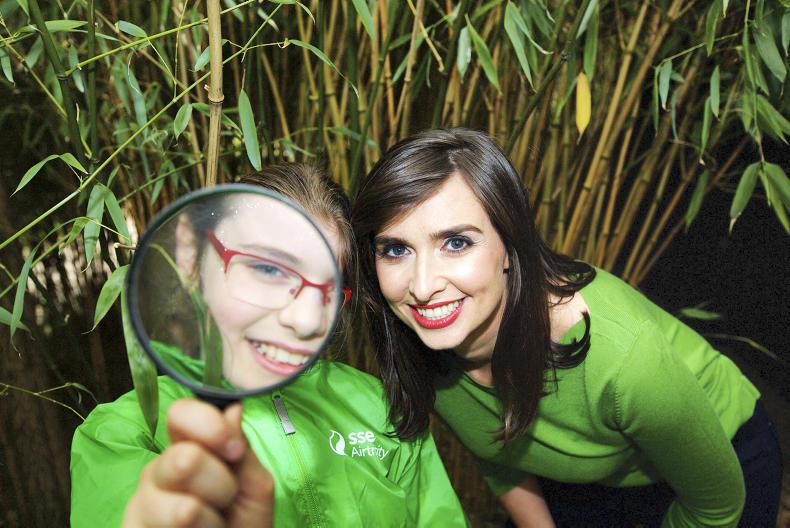Aoibhinn Ní Shúilleabháin never planned on working in the media. Nevertheless, the academic sees no conflict between her two professions.
“Media has never been a full-time job for me; education has always been my main focus and my main goal,” she says.
The Mayo native is a passionate advocate for mathematics and science and improving how these subjects are taught in schools.
When in secondary school, she toyed with the idea of studying communications in college before a guidance counsellor steered her towards maths, blissfully unaware of the future direction of her career.
However, since winning the Rose of Tralee at the age of 21 in 2005, Aoibhinn – who then worked as a secondary school teacher – has gone on to share her love of science through shows such as The Science Squad and 10 Things to Know About…
Having completed her PhD in mathematical education in 2015, Aoibhinn is now working as an assistant professor in UCD’s School of Mathematics and Statistics.
“I had an academic life planned out for myself when I finished my degree doing theoretical physics, but I think it’s wonderful that I do have the opportunity to work in media, particularly when I can use my background in science to promote different educational initiatives,” she says.
“It’s incredibly important to me that I communicate what the research is telling us about teaching and learning mathematics and science. I’m really privileged that I have the opportunity to communicate really positive messages about science.
Aoibhinn is now partnering with Dublin Zoo to educate families about the importance of sustainability with a brand new SSE Airtricity eco explorer interactive app and sustainability trail at the Zoo.
“It’s a really nice addition to the zoo. It’s another great way of educating young people about the environment and establishing energy awareness,” she says.
“As a scientist, it’s something that I think is incredibly important – we can’t deny that all the scientific evidence and research that we have seen over four decades now demonstrates that climate change is happening,” she says. “We can do our own little piece – make sure we recycle and don’t use as much electricity and fossil fuel – everyone has a role to play in that.
“In Ireland we’re known as a green country – that should both be in terms of our landscape and our energy usage. We’re at a very unique point in Ireland in that we could become leaders in renewable energy and leaders in energy efficiency as well.”
Through her role in UCD, she hopes to make a “positive contribution” to the teaching of mathematics, a subject that is often viewed with trepidation.
“All the research would tell you that, different to other subjects, mathematics brings with it an anxiety that is quite typical of most classrooms across the world. It comes from a culture that we’ve had of really learning off procedures without really fully understanding them,” she explains.
“Some of our students have the highest levels of anxiety in the EU when it comes to mathematics and I think this is something we should be addressing in our approach to teaching and how we talk about it. As a society, we are quite happy to say ‘oh, I was never good at that’ (about maths), but we wouldn’t say the same about learning English.”
When research has showed that the ratio of male students to female students at secondary level is 3:1 for physics, does she see a gender imbalance in the STEM (science, technology, engineering and math) area? Not exactly, but there are issues.
“I don’t think it’s a gender issue, we should be encouraging all of our young people into studying maths-based courses, if that’s what they are interested in. I don’t think we should be encouraging everyone to study science, technology, engineering and maths because it’s not for everybody and, equally so, I think people should pursue what they are interested in,” she says.
“The message has to go out there that it’s not a given that anyone is good at one subject because of their gender, that’s a complete myth but it’s often a culture that we see portrayed a lot.”
Aoibhinn was recently selected as one of 40 European leaders under the age of 40, in part due to her advocacy of science, technology and engineering and mathematics, particularly for girls.
“Girls are applying themselves more, but we don’t see them picking physics or applied mathematics as much as boys do, and part of that could be down to the fact that those subjects are not offered in girls’ schools. And that’s something we should try to address,” she adds.
However, Aoibhinn prefers to see opportunities rather than challenges.
“If it is perceived that there are less women in any given field, that should be taken on as a really positive challenge rather than something that would be a negative,” she says.







SHARING OPTIONS